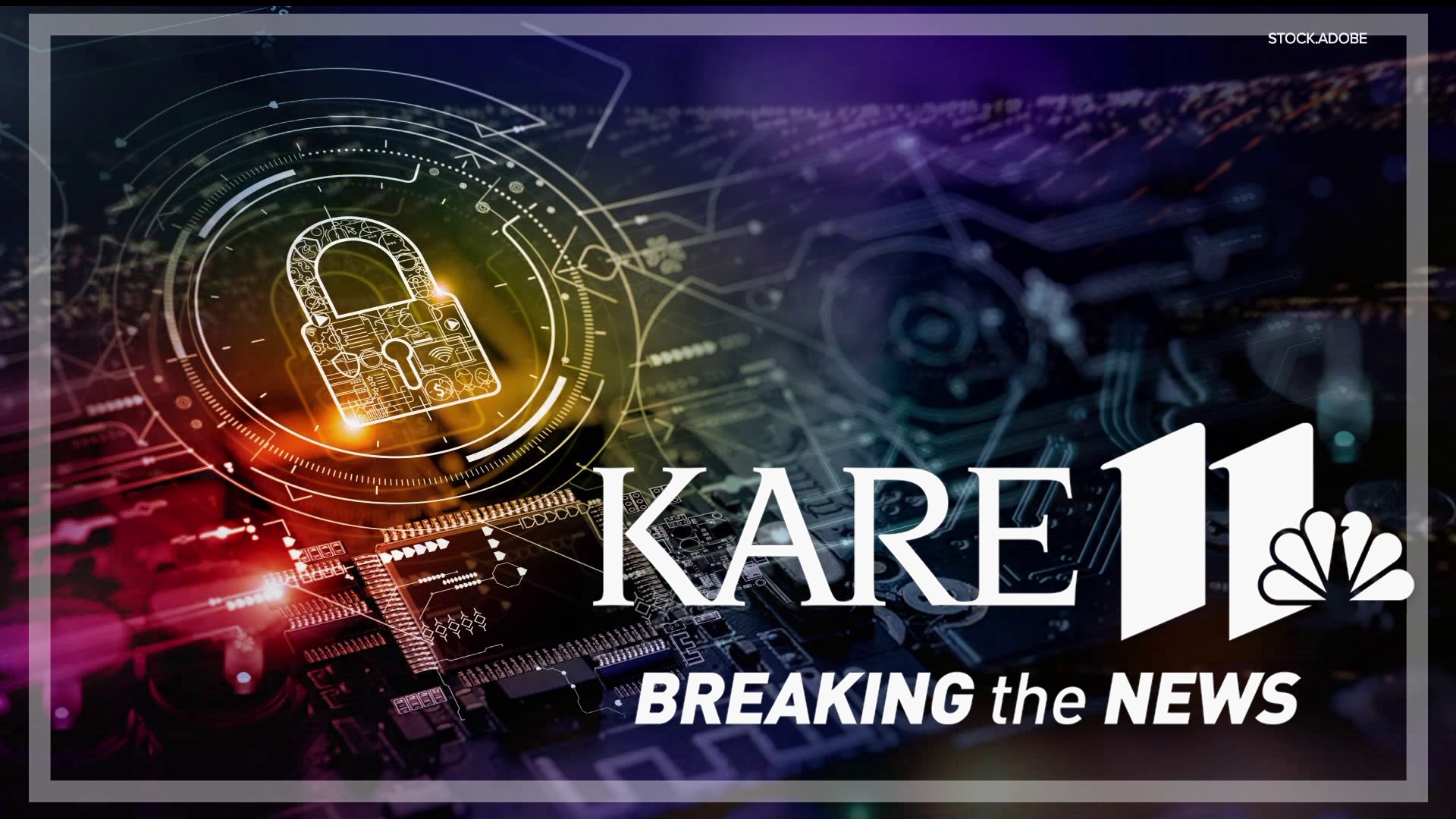MINNEAPOLIS — On Monday afternoon, Rochester Public Schools confirmed a data breach that forced them to cancel classes on Monday, while staff devised a plan to teach without most - if not all - network access.
“Earlier today, we confirmed that an outside actor has gained access to some school district data. Please know, as of now, we have no evidence that any data associated with this event has been used for financial fraud or identity theft. As our investigation continues, as a best practice, you should always remain vigilant in reviewing your financial account statements and credit reports for fraudulent or irregular activity on a regular basis. We will be in contact with affected individuals whose data was accessed as soon as we are able.”
"Our staff is working to restore all systems as quickly and securely as possible, and school will resume on Tuesday, April 11. We continue working with third-party cybersecurity experts to determine the full scope and scale of this incident, and we will share more information when it becomes available. We apologize for the inconvenience this may cause."
School cybersecurity experts say it's become more and more common for schools to cancel classes in the face of large, complex attacks on their networks.
"It's absolutely the case that it can take days or even weeks to determine actually what happened and what may be at risk," said Doug Levin, national director of the K12 Security Information eXchange (K12 SIX), a national nonprofit that helps schools protect against cybersecurity threats.
Since 2016, K12 SIX has tracked more than 16 hundred cyber incidents across the country. That includes 288 incidents in 2022, including 7 in Minnesota.
"And these are just for publicly reported incidents," Levin said. "So there are many, many incidents that are not publicly reported. This is a significant problem and it is one that has been growing both in frequency and severity."
Levin says that severity is being driven by a rise in large ransomware attacks. He says those attacks are most often coming from overseas hacking groups that demand large sums of money in exchange for restoring network access or keeping sensitive staff, student and family data from going to the highest bidder.
An apparent ransomware incident impacting Minneapolis Public Schools several weeks ago that resulted in "certain data" hitting the dark web, putting years of sensitive staff, student and family information in jeopardy.
Kent Erdahl: "What is it about school districts that is making them targets?"
Doug Levin: "They have a lot of valuable information. This may be somewhat counterintuitive but the identity information of minors is actually much more valuable to identity thieves than that of adults."
Levin says adults are much more likely to monitor their credit and receive notifications of suspicious activity.
"A minor's identity information can be used to abuse credit records in some cases for years and years without anyone knowing," he said.
In response to that threat, Levin encourages all parents - no matter where they live - to consider freezing their children's credit to be proactive.
Meanwhile, schools may soon have a new way to become more proactive as well. A new education bill offered by the Minnesota House would provide $35 million in grants for schools to improve both building security and cybersecurity.
Though that state legislation has yet to pass, Levin points out that FEMA also just began rolling out the new State and Local Cybersecurity Grant Program.
"All but two states are participating in that (grant program) and the money is designed specifically to help organizations like school districts to shore up their cyber defenses," he said.
But Levin argues that raising those defenses will also take better communication so that everyone can learn from each other before it's too late.
"Hopefully Rochester takes a lesson learned from Minneapolis, with the frustration in the school community, which I think is quite understandable," he said. "It's important to keep those lines of communication open and allow individuals who may be affected to take steps to protect themselves as soon as possible."
For more information on how to freeze your child's credit, click here.
Watch more Breaking The News:
Watch all of the latest stories from Breaking The News in our YouTube playlist:

